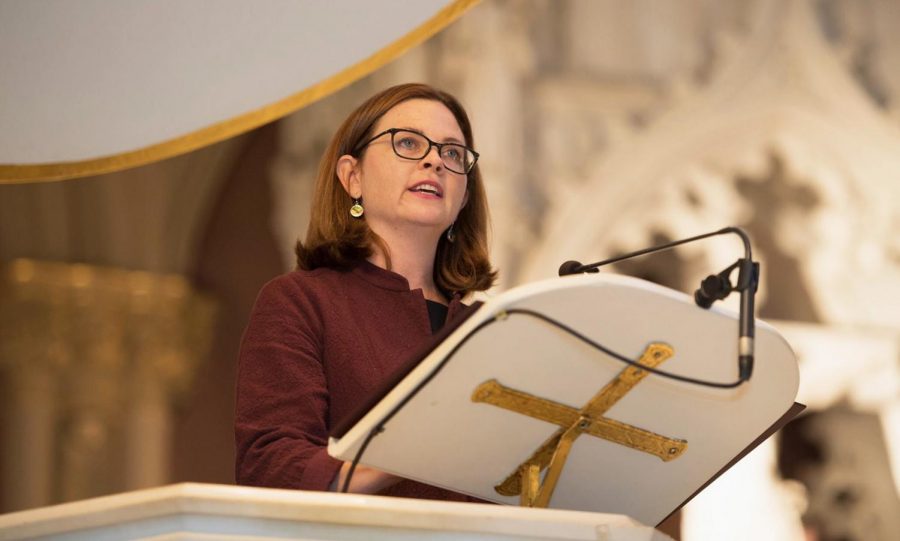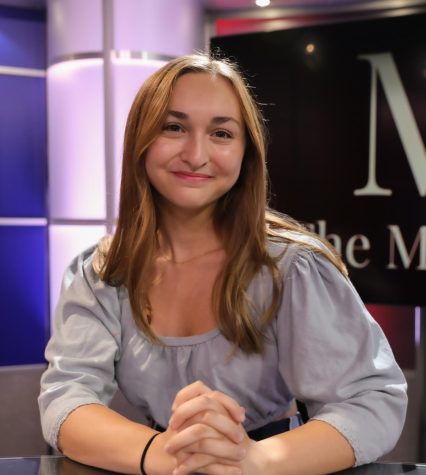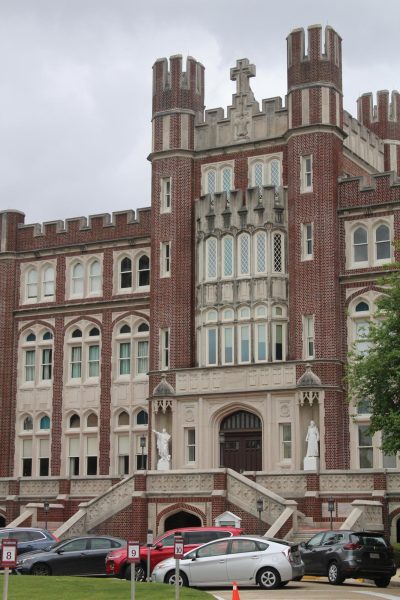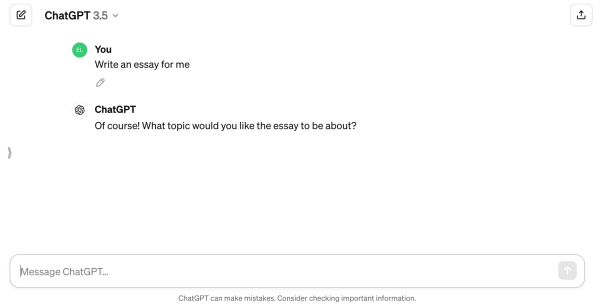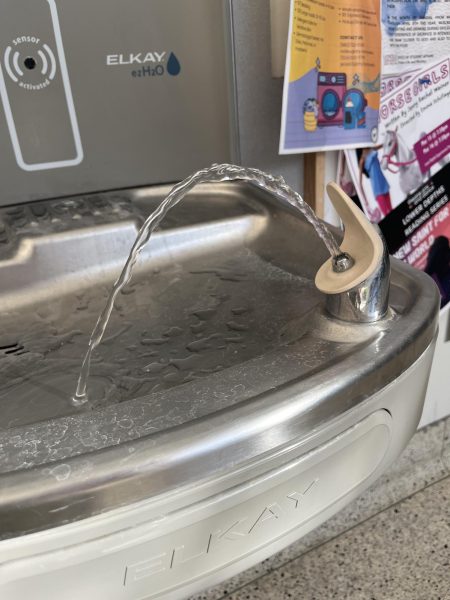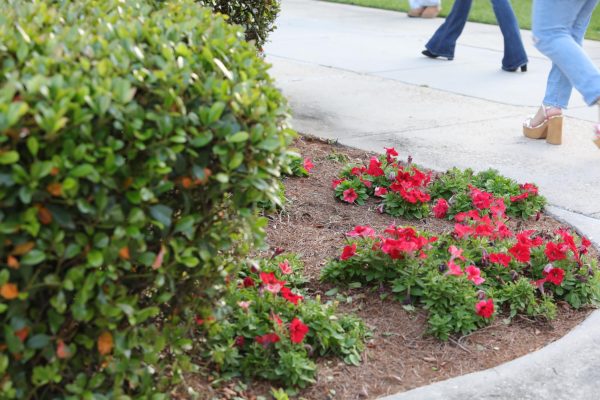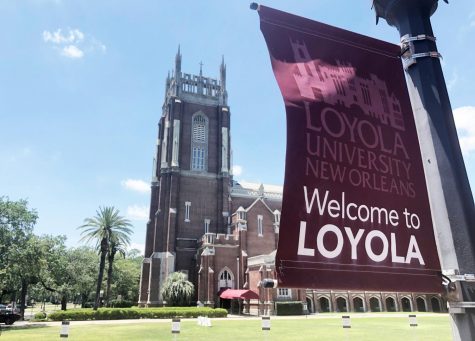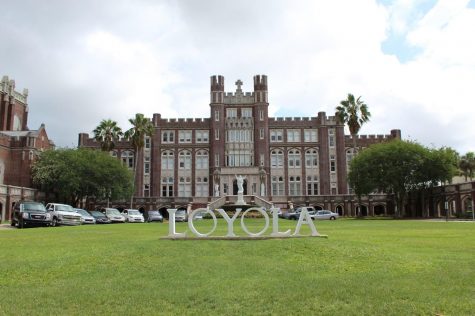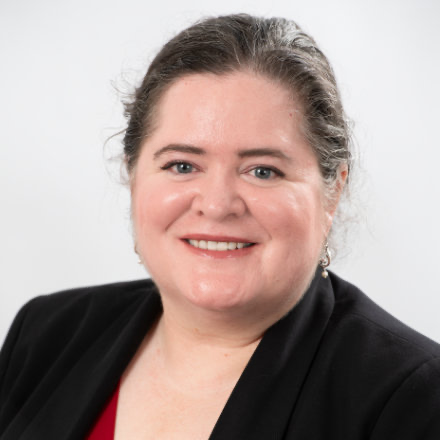Tetlow speaks on finances, diversity and the human resources process
President Tania Tetlow addresses a missioning mass in Nov. 2018. Tetlow is leaving Loyola and assuming the role as president of Fordham University.
October 1, 2020
Since the beginning of the school year, University President Tania Tetlow said the university has focused on anti-racism practices as well as combatting the financial impacts of the COVID-19 pandemic to keep Loyola in good financial standing with its accreditors.
Financial Stability
Loyola has had to deal with significant costs and revenue cuts related to the COVID-19 pandemic, less than a year after getting off of financial probation for previous years of economic mismanagement.
The university’s COVID-19 expenses related to extra cleaning, hiring contact tracers and on-call health care workers total $1.3 million, Tetlow said.
Additionally, Loyola has been running on a small deficit with a loss of about $6 million in revenue, she said.
Tetlow said the deficit has been caused by the COVID-19 expenses, the lack of conferences and filming on-campus, and fewer students living in residence halls.
The university also has seen a small dip in enrolled students. Tetlow said enrollment took a 4% hit and the number of students who deferred their admission to Loyola to a later date doubled this year.
To remain in good standing with its accreditors, she said the university has had to be cautious about running deficits that are not explainable by COVID-19 and the school has to live within its means.
“There is a lot of things that we’ve been asked to do where there is not a world where we can just sort of go into that kind of debt and have our accreditors not keep consequences on us for that.”
In the spring, Loyola received almost $3 million from the Coronavirus Aid, Relief, and Economic Security Act, a congressional relief act that provided economic support for businesses and individuals impacted by the pandemic, according to the university website. While half of the relief was directed toward students through emergency student aid grants, the rest was used to cover institutional costs related to the pandemic.
“If another stimulus package is past we are hoping that it will contain help for schools like ours and that Congress really understands that education is infrastructure for the economy,” Tetlow said.
Despite the impact that the COVID-19 pandemic has had on higher education, Tetlow said Loyola’s student retention rates have surpassed expectations at 83%.
“In a year when we had an incredible disruption of students’ lives that is an astonishing feat and not just that but the retention rates for Pell eligible students is higher than the average for everyone else,” she said.
Diversity and the Human Resources Process
This summer, resurfaced racial bias complaints and allegations of racism against the School of Communication and Design’s former director Sonya Duhé brought to light conversations about potential inadequacies in the process of reviewing bias reports in the Human Resources department.
In an email sent to students this summer, Tetlow said that the university needed to reevaluate the process for filing human resources complaints, especially those against faculty members.
“None of these processes is perfect, because like every system of justice in the world, these are systems operated by human beings,” Tetlow said. “We design a process that does its best to balance the interests at stake: to encourage people to come forward, to treat them well, to get the right answer and to be fair to the accused,” she said in the email. “It’s important to create a process that you would find just as legitimate no matter which side of it you happened to be on.”
In a recent interview with The Maroon, Tetlow said that there was previously only one case investigator in human resources, but the university has since hired new staff to increase both the number and diversity of trained investigators.
Tetlow also said that following reporting by The Maroon on the allegations against Duhe, the university looked back at prior complaints against staff and faculty members throughout the university to see if there have been any repeat complaints that might require further inspection.
Recently, the university has also required that faculty and staff complete a month-long Cornell course on teaching and learning in a diverse classroom as part of their diversity and inclusion training, Tetlow said.
A discussion group among faculty members has also been made to continue conversations regarding diversity beyond the course, according to Tetlow.
“If we are not talking about these subjects fully, we are not doing our jobs and we all have something to learn and we know that because we are in the teaching and learning business,” Tetlow said. “We need to move now and that requires all of us that we learn more, understand more, do more, be engaged.”


